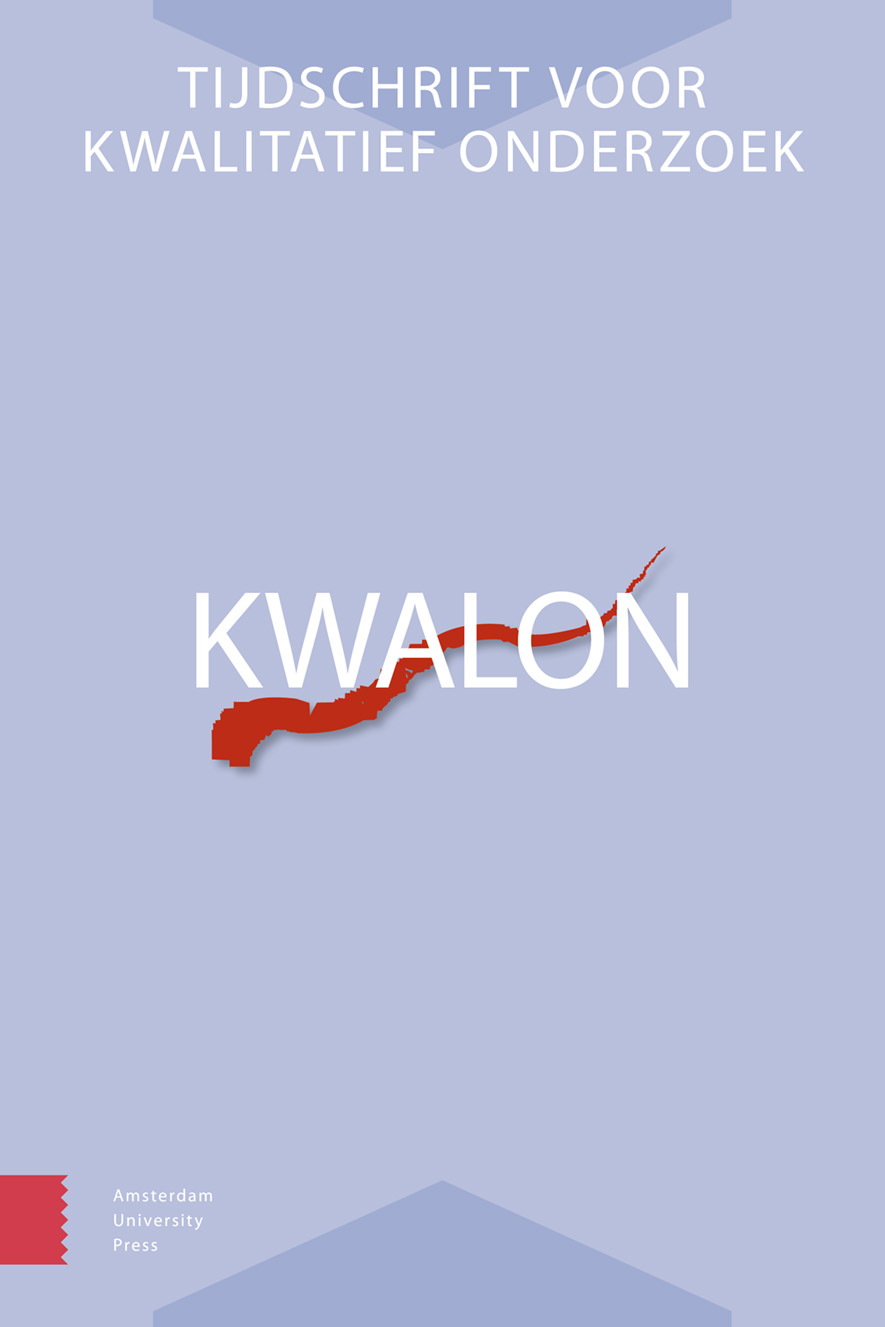- Home
- A-Z Publications
- KWALON
- Previous Issues
- Volume 28, Issue 2, 2023
KWALON - Volume 28, Issue 2, 2023
Volume 28, Issue 2, 2023
- Redactioneel
-
- Essay, Debat en Dialoog
-
-
-
Template analyse: handig, maar bij verkeerde toepassing vooroordeelbevestigend
More LessAuthor: Reinoud BoschAbstractTemplate analysis: Useful, but prejudice-affirming if applied incorrectly Template analysis offers useful methodological steps to perform thematic analysis, but an important presentation of these steps contains philosophical and methodological misspecifications. These misspecifications not only lead to questionable prescriptions, they also provide the possibility for a prejudiceaffirming way of research with potential adverse scientific and societal consequences. The misspecifications include the allowance of verificationism and the philosophically incorrect and scientifically questionable use of the terms ‘induction’ and ‘deduction’. To be scientifically sound, the specification of the steps of template analysis should be such as to ensure a fit between the data, the interpretations, the themes, the literature, and the final scientific conclusions by emphasizing the centrality of honest and responsible abductive open coding.
-
-
- Artikelen
-
- Column
-
- Onderzoek in de Praktijk
-
-
-
‘Je begrijpt mij wel, toch?’. Gezondheidsonderzoek binnen de Marokkaanse gemeenschap in Nederland
More LessAbstract‘You understand me, right?’. Health research among the Moroccan community in the Netherlands
Based on a secondary analysis of three qualitative studies, we describe three tensions that arose when conducting health research within the Moroccan community in the Netherlands. Namely, the tension between (1) the need for an informal recruitment approach and preventing participation as a social obligation, (2) building a relationship of trust and breaking taboos and (3) immersing into respondents’ life world and keeping a distant perspective. The current scientific practice provides limited space to align with ethnic minority’s experience that professional and formal institutes have little attention for their perspectives and needs. Research teams, consisting of researchers from different backgrounds, who take time to continuously reflect collectively on the research process are necessary to recognize such tensions and find ways to deal with these tensions.
-
-
- Artikelen
-
-
-
Reflecties op de praktijk en ethiek van heimelijke etnografie
More LessAuthor: Ruben TimmermanAbstractReflections on the practice and ethics of covert ethnography
In scientific studies involving human subjects, voluntary informed consent is often regarded as a basic standard for ethical research. However, when it comes to ethnography involving the collection of data through (participant-) observation, this can present significant challenges. Ethnographers are often required to embed themselves in complex social worlds with numerous actors occupying a range of social roles and activities. Many ethnographers have openly discussed the challenges of ensuring fully informed consent within this context. These challenges are even more present when the research involves observing deviant, socially harmful, or (potentially) criminal activity. Studying such activity may require ethnographers to hold a ‘covert’ position to secure and maintain access to the research field. In this paper, I draw on my own experience conducting ethnography in the Dutch labour market. This research was carried out as part of my PhD project, exploring the nature of precarious work and exploitation of lowwage migrant workers in the Netherlands. Having recently completed my observational fieldwork, I offer some brief lessons and reflections from my experience that may be helpful to other researchers navigating the complex ethical realities of ethnographic research or considering adopting covert methods themselves.
-
-
- Tips & Tools
-
- Recensies, Replieken en Duplieken
-
- Artikelen
-
Volumes & issues
-
Volume 29 (2024)
-
Volume 28 (2023)
-
Volume 27 (2022)
-
Volume 26 (2021)
-
Volume 25 (2020)
-
Volume 24 (2019)
-
Volume 23 (2018)
-
Volume 22 (2017)
-
Volume 21 (2016)
-
Volume 20 (2015)
-
Volume 19 (2014)
-
Volume 18 (2013)
-
Volume 17 (2012)
-
Volume 16 (2011)
-
Volume 15 (2010)
-
Volume 14 (2009)
-
Volume 13 (2008)
-
Volume 12 (2007)
-
Volume 11 (2006)
-
Volume 10 (2005)
-
Volume 9 (2004)
Most Read This Month


